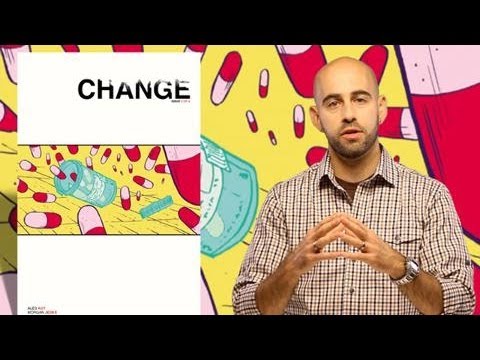Answers from a Biology Professor on Twitter about Aging
Summary
Dr. Levin, a biology professor who specializes in aging, answered questions from Twitter about the aging process. The article reveals that biological aging can be disentangled from chronological aging, indicating that we can slow down the rate at which changes occur and potentially reverse them. The post discusses longevity, genetic determination, and the detrimental effects of the American diet on aging processes.
Table of Contents
- Slowing Down the Aging Process
- Determinants of Longevity
- Women and Aging
- Plant-Based Diets and Aging
- Cellular Senescence
- Aging Manifestations and Chronic Diseases
- Safety of Childbirth Later in Life
- The Effects of the American Diet on Aging
- Healthspan vs. Lifespan
- Blue Zones and Longevity
- Wrinkles, Gray Hair, and Aging
Introduction
The aging process can be painful due to the accumulation of biological and molecular changes in our bodies, causing a decline in ideal bodily function and chronic disease. Dr. Levin, a biology professor specializing in aging, answered questions from Twitter to help people understand the aging process better. The article sheds light on the complex system that is aging and how it affects us.
Q&A
1. Is it possible to slow down the aging process?
Yes, it is possible to slow down the aging process. Biological aging can be disentangled from chronological age, meaning that we can slow down the rate at which changes accumulate and potentially reverse them. By adopting a healthy lifestyle, including eating well and exercising, we can significantly slow down the aging process.
2. Is hangover worse with age or we just forget how bad they were?
There is no evidence to support the idea that hangovers get worse with age. It is more likely that we forget how bad they were!
3. How is longevity determined? Is it mostly genetics?
Longevity is mostly determined by environmental factors such as lifestyle, diet, and exercise. Only 10-20% of lifespan is dictated by genes. Therefore, adopting a healthy lifestyle is the best way to prolong life.
4. Do women live longer than men?
Yes, women tend to live longer than men. However, they are more susceptible to frailty, Alzheimer’s disease, and osteoporosis.
5. Can a plant-based diet help extend lifespan?
Yes, a plant-based diet can extend lifespan and prevent disease. Plant-based diets are associated with lower rates of cancer, diabetes, and heart disease.
6. What is cellular senescence, and how does it affect aging?
Cellular senescence is the process by which a cell reaches the end of its lifespan and accumulates in aging tissues, causing tissue inflammation. Cellular senescence can be slowed and even reversed in some cell types.
7. Are chronic diseases considered manifestations of aging?
Yes, chronic diseases, such as diabetes and heart disease, are considered manifestations of aging rather than diseases.
8. Is having a child later in life safe?
The safety of having a child later in life depends on an individual’s rate of aging. Epigenetic modification is thought to be the most predictive determinant of aging.
9. How does the American diet affect aging?
The American diet can have neurological effects and accelerate aging processes. Therefore, adopting a safe and healthy diet is essential to avoid any harmful effects.
10. What is the difference between healthspan and lifespan extension?
Healthspan extension aims to increase the number of years a person enjoys excellent health, whereas lifespan only aims to prolong the duration of life.
11. Do blue zones, places where people live longer, truly exist? And if yes, why?
Yes, blue zones do exist. People in blue zones have common traits that help them live longer, which include physical activity, diet, and strong social relationships.
12. Do gray hair and wrinkles mean that aging accelerates as we approach 40?
There is no evidence to support the idea that aging accelerates as people approach 40. Gray hair and wrinkles are more likely due to natural aging and individual variance.
Conclusion
In conclusion, the aging process can be slowed down by adopting a healthy lifestyle, including exercise and a plant-based diet. Although genetics may play a role in longevity, environmental factors are the most significant determinants. Chronic diseases are considered manifestations of aging, and the American diet can accelerate the aging process. Healthspan extension should be the focus rather than just extending lifespan. Blue zones do exist, and adopting common longevity traits, including a healthy diet and physical activity, can be helpful. Lastly, gray hair and wrinkles are normal indications of natural aging and individual variance, rather than a sudden acceleration in aging processes.







